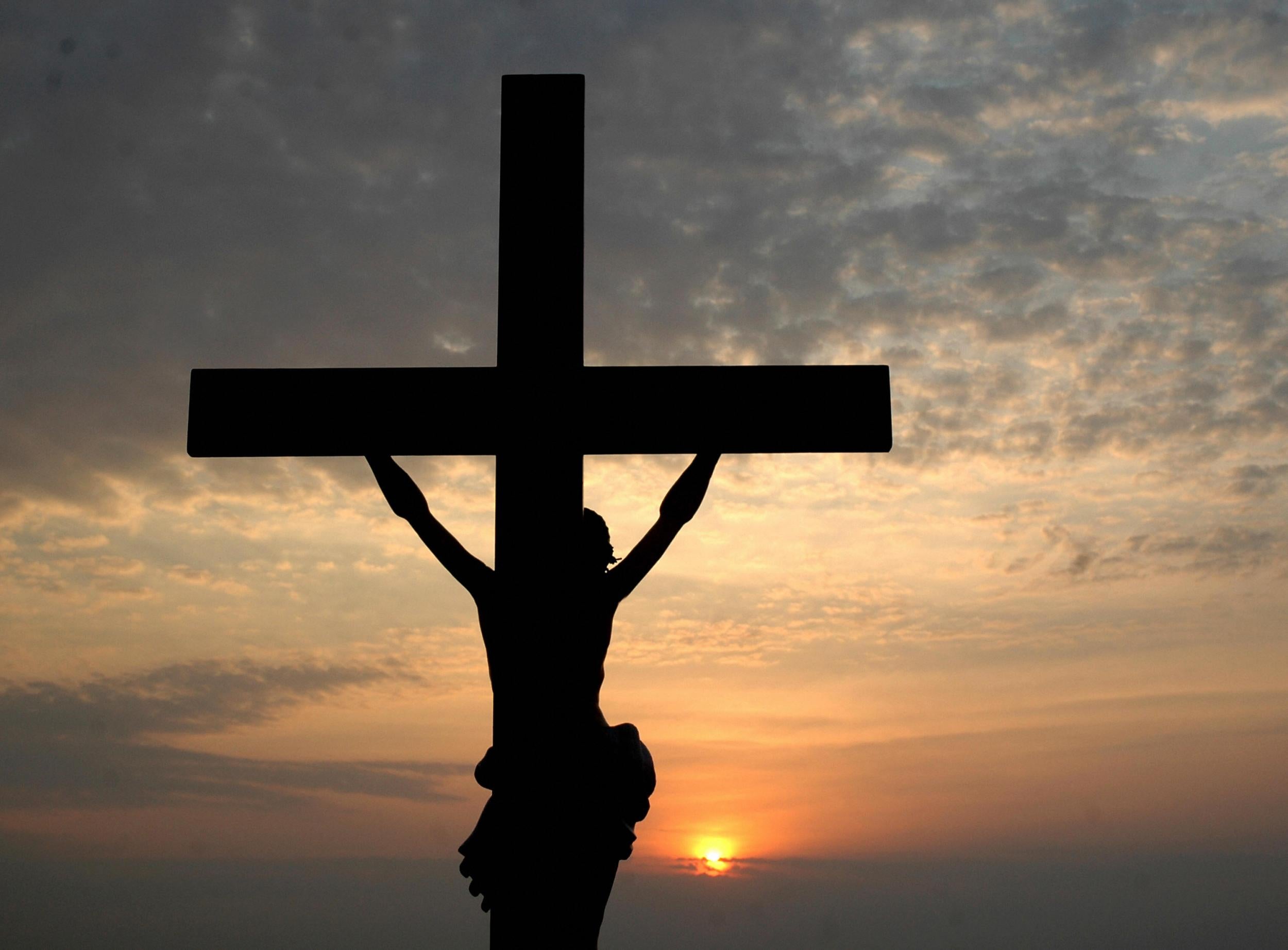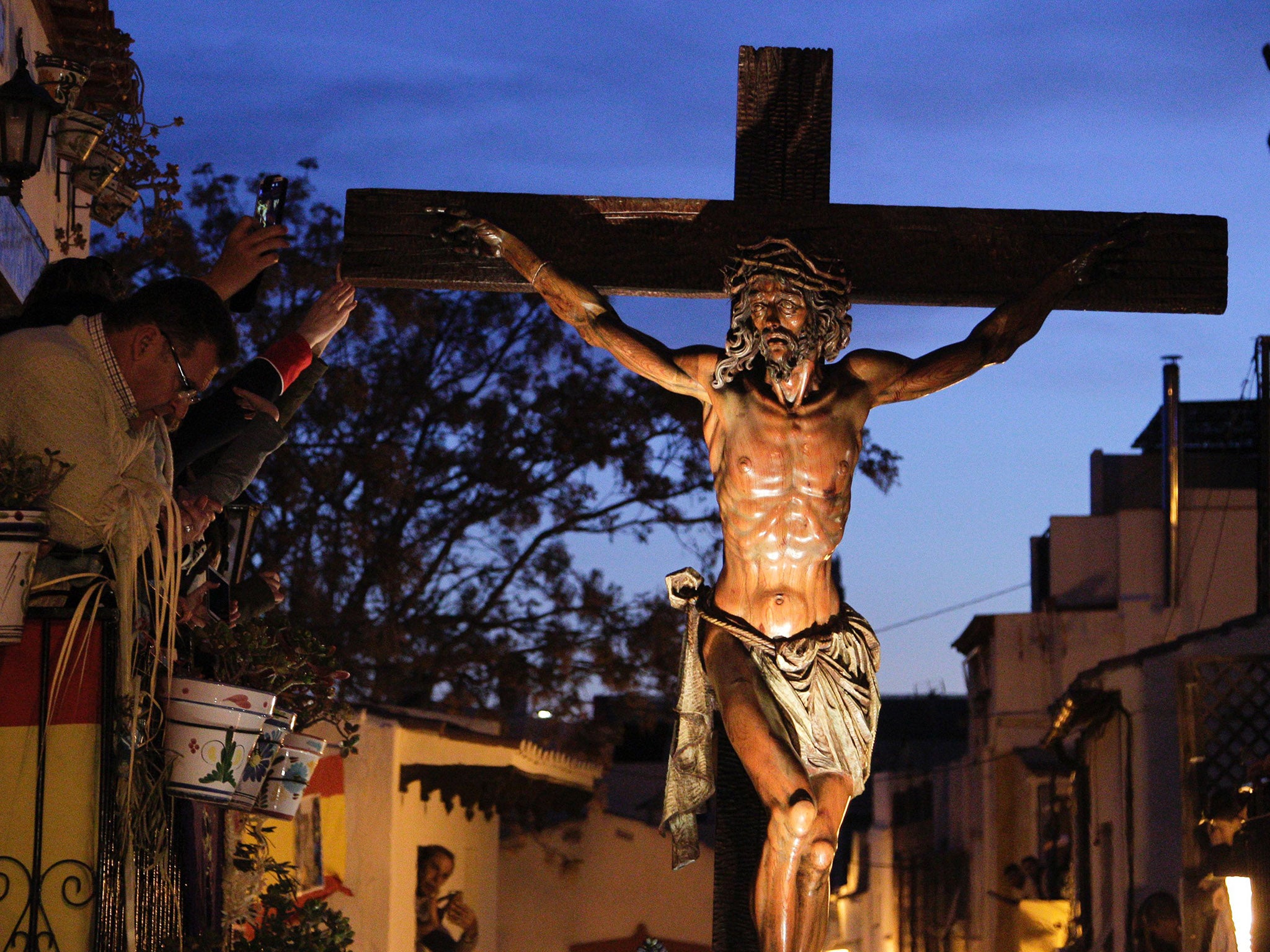Easter 2016: Jesus actor fired from Sunday parade for being 'too gay'
Ramón Fossati accused of waving his arms in an 'ostentatious' way

An actor who has played Jesus in traditional Spanish Easter parades for 30 years says he has been banned from the role for at least two years because he is gay.
Ramón Fossati says he was told he could not perform the role in the traditional parade to mark Easter Sunday until 2019 because he exposed a naked shoulder and waved his arms in an “ostentatious” way last year.
The Junta Mayor de Semana Santa Marinera, which governs the brotherhoods in Valencia which organise the Holy Week celebrations, accused Mr Fossati of “ostentation and parody” and appearing to give “false blessings” to the crowd.

Mr Fossati said he was merely waving to the crowd and that his costume had been modelled on traditional religious paintings which showed Jesus bare shouldered.
He had modified it so it only had bare one shoulder because he feared exposing both would be considered too risque, The Times reports.
He was originally fined €300 (£237) following the parade last year but it was reduced to €60 (£47) on appeal and he was banned from the parade by the Santísimo Cristo del Salvador brotherhood.
Mr Fossati says he was not given a reason for the ban but that he suspected it was because he is gay.
He said: “It could be jealousy. Or maybe it was punishment for being gay. But everyone where I live knows my sexual orientation and it is not an issue.
“I am deeply religious and this is the worst thing that could happen.”
Easter processions are strictly regulated by religious authorities in Spain to prevent too much flesh being exposed or inappropriate religious gestures.
Women have been fined in the past for showing cleavage or wearing dresses above the knee.
They are usually asked to wear black dresses and a headdress known as a mantilla to the parades.
Join our commenting forum
Join thought-provoking conversations, follow other Independent readers and see their replies
Comments